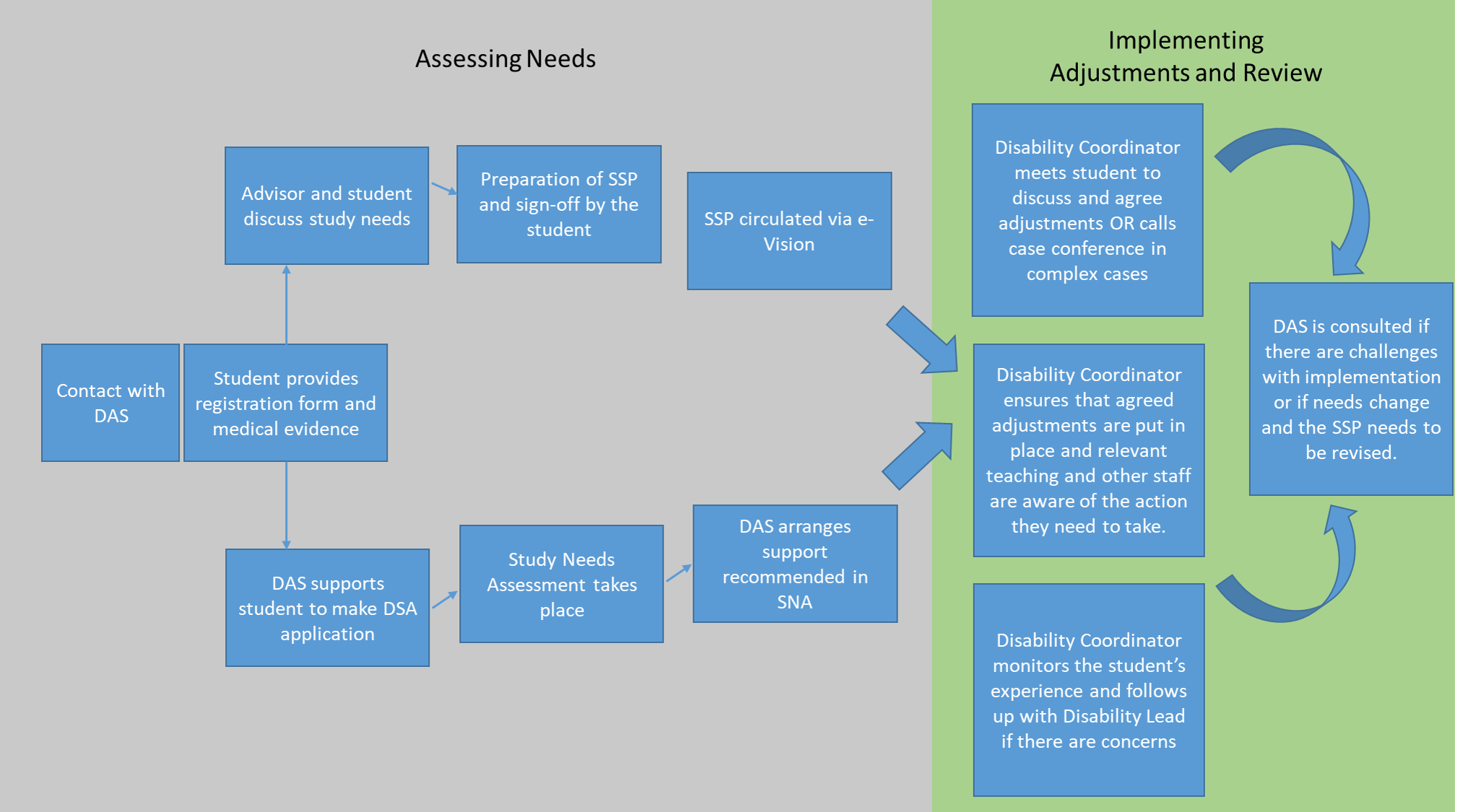Once the SSP has been approved by the student, it will be made available in the student’s record on eVision as a PDF document. The student, the disability coordinators in the department and college will receive an email letting them know it is available to them. Where relevant adjustments have been recommended, the SSP will also be shared with the Disability Librarian, Access Officer and the Examinations Schools.
Disability Coordinators then circulate the SSP to other staff within the department or college who need to know (respecting any preferences expressed by the student in the SSP). Where the whole SSP is being shared, this should be done via e-Vision. For colleges, this is likely to include:
- college lecturers who will be teaching the student (whole SSP);
- the tutors providing pastoral support (whole SSP);
- the domestic bursar (where adjustments to accommodation are needed, whole SSP);
- the safety officer (for PEEPs, whole SSP).
In departments and faculties, this is likely to be:
- the convenors of the papers the student is taking (whole SSP), who are then responsible for sending information about the adjustments needed to all those providing teaching to the student.
- the Health and Safety Officer (to make a judgement about whether a PEEP is required).
It may not be necessary to send the whole SSP to teaching staff or let them know who the student is or what the impairment is, especially when adjustments are required to lectures. A common sense approach is important in deciding what those involved in providing support need to know in order to make the necessary adjustments. Where it is not necessary to share the whole SSP, information can be shared via email in accordance with our data security advice. Information is only shared with those who are involved directly in providing support or services to students. The section on the impact of their impairment on study in the SSP will be particularly helpful for those providing teaching, and when it is shared effectively, the student does not have to explain the impact of their impairment and the importance of a particular adjustment to each lecturer or tutor who teaches them. Students can share information about their disability with tutors and others, but this is their choice.
Visit the Confidentiality and sharing information page for further advice on sharing the SSP.



